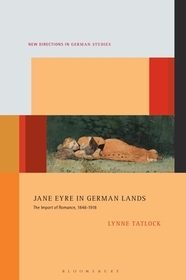
Queering Faith in Fantasy Literature
Fantastic Incarnations and the Deconstruction of Theology
Sorozatcím: Perspectives on Fantasy;
-
20% KEDVEZMÉNY?
- A kedvezmény csak az 'Értesítés a kedvenc témákról' hírlevelünk címzettjeinek rendeléseire érvényes.
- Kiadói listaár GBP 90.00
-
42 997 Ft (40 950 Ft + 5% áfa)
Az ár azért becsült, mert a rendelés pillanatában nem lehet pontosan tudni, hogy a beérkezéskor milyen lesz a forint árfolyama az adott termék eredeti devizájához képest. Ha a forint romlana, kissé többet, ha javulna, kissé kevesebbet kell majd fizetnie.
- Kedvezmény(ek) 20% (cc. 8 599 Ft off)
- Kedvezményes ár 34 398 Ft (32 760 Ft + 5% áfa)
Iratkozzon fel most és részesüljön kedvezőbb árainkból!
Feliratkozom
42 997 Ft

Beszerezhetőség
Becsült beszerzési idő: A Prosperónál jelenleg nincsen raktáron, de a kiadónál igen. Beszerzés kb. 3-5 hét..
A Prosperónál jelenleg nincsen raktáron.
Why don't you give exact delivery time?
A beszerzés időigényét az eddigi tapasztalatokra alapozva adjuk meg. Azért becsült, mert a terméket külföldről hozzuk be, így a kiadó kiszolgálásának pillanatnyi gyorsaságától is függ. A megadottnál gyorsabb és lassabb szállítás is elképzelhető, de mindent megteszünk, hogy Ön a lehető leghamarabb jusson hozzá a termékhez.
A termék adatai:
- Kiadó Bloomsbury Publishing (UK)
- Megjelenés dátuma 2022. február 10.
- Kötetek száma Hardback
- ISBN 9781350231733
- Kötéstípus Keménykötés
- Terjedelem248 oldal
- Méret 160x236x20 mm
- Súly 540 g
- Nyelv angol 228
Kategóriák
Hosszú leírás:
Fantasy literature inhabits the realms of the orthodox and heterodox, the divine and demonic simultaneously, making it uniquely positioned to imaginatively re-envision Christian theology from a position of difference. Having an affinity for the monstrous and the 'other', and a preoccupation with desires and forms of embodiment that subvert dominant understandings of reality, fantasy texts hold hitherto unexplored potential for articulating queer and feminist religious perspectives.
Focusing primarily on fantastic literature of the mid- to late twentieth century, this book examines how Christian theology in the genre is dismantled, re-imagined and transformed from the margins of gender and sexuality. Aligning fantasy with Derrida's theories of deconstruction, Taylor Driggers explores how the genre can re-figure God as the 'other' excluded and erased from theology. Through careful readings of C.S. Lewis's Till We Have Faces, Angela Carter's The Passion of New Eve, and Ursula K. Le Guin's The Left Hand of Darkness and the Earthsea novels, Driggers contends that fantasy can challenge cis-normative, heterosexual, and patriarchal theology. Also engaging with the theories of Hï¿1⁄2lï¿1⁄2ne Cixous, Luce Irigaray, Marcella Althaus-Reid, and Linn Marie Tonstad, this book demonstrates that whilst fantasy cannot save Christianity from itself, nor rehabilitate it for marginalised subjects, it confronts theology with its silenced others in a way that bypasses institutional debates on inclusion and leadership, asking how theology might be imagined otherwise.
Tartalomjegyzék:
Series Editor Preface
Acknowledgements
Introduction: Worlds of Difference
Structure and methodology
Against apologetics
Deconstruction, theology, and feminism
Fantasy: definitions, critical approaches, and figurations
Chapter One: Saving Face?: Fantasy, Ethical Alterity, and Deconstruction
Defining deconstruction, deconstructing definitions
Vive la diffï¿1⁄2rance
Theological deconstruction
Deconstructive theology
The call to advent-ure; or, Derrida among the dragons
Deconstructing Christianity in The Passion of New Eve
'Holy places are dark places': facing the other in Till We Have Faces
Breaking the circle: religion without religion in The Left Hand of Darkness
Conclusions
Chapter Two: Dragons in the Neighbourhood: The Fantastic Discourse of Femininity
'A world all her own': Hï¿1⁄2lï¿1⁄2ne Cixous and ï¿1⁄2criture feminine
Is fantasy feminine?
The laugh of the dragon
Mï¿1⁄2re Christianity: women's language and holy wisdom in Till We Have Faces
'The fecund darkness': 'bisexual' religion and society in The Left Hand of Darkness
Conclusions
Chapter Three: Hetero-doxies: Fantasy and the Problem of Divine Womanhood
Riddles in the dark: Luce Irigaray's feminist mysticism
Becoming Psyche: identity and Eros in Till We Have Faces
'Her own mythological artefact': The Passion of New Eve and the theatre of divine womanhood
Conclusions
Chapter Four: Drag(on) Theology: The Queer Strangers of Fantasy
Queer(ing) definitions
Queering theology
Undressing orthodoxy: Althaus-Reid's Indecent Theology
Theology of failure: Tonstad's queer messianism
Drag(on) theology: queer incarnations and fantastic embodiment
Double drag: sacred parody in The Passion of New Eve
Queer failure in/as worldbuilding: mystical perversions in The Left Hand of Darkness
Walking the Dragons' Way: sacred multiplicity in Earthsea
Conclusions
Monstrous Messianisms: Conclusions
Divine speech and matter: Ann Leckie's The Raven Tower
Swimming against the tides: Neon Yang's Tensorate series
Gods and seduction: N.K. Jemisin's Inheritance trilogy
Awaiting eucatastrophe
Notes
Bibliography
Index


Latin American Development
28 660 Ft
25 794 Ft










